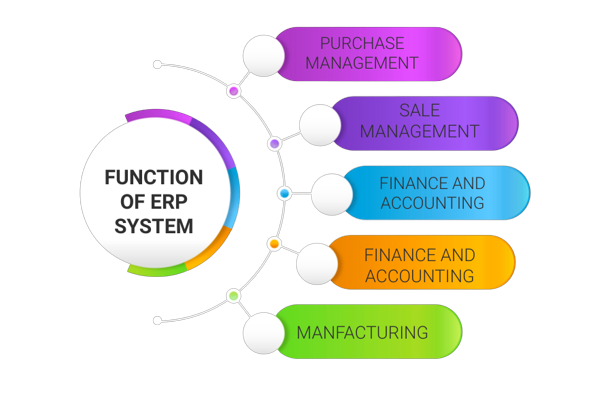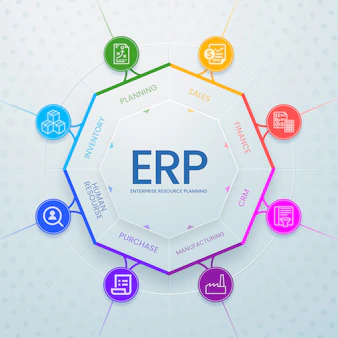Enterprise Resource Planning (ERP) refers to a type of software that organizations use to manage day-to-day business activities such as accounting, procurement, project management, risk management and compliance, and supply chain operations.
Enterprise Resource Planning (ERP) software streamlines essential business activities like accounting, procurement, project management, risk management, compliance, and supply chain operations. By integrating these functions into a unified system, ERP enhances efficiency, enables data-driven decision-making, and improves overall organizational performance, making it an invaluable tool for modern businesses.
Enterprise resource planning (ERP) is a business management approach that integrates vital elements for effective operations.
ERP software programs assist businesses in implementing resource planning by integrating processes into a single system.
ERP enables streamlined management and coordination of essential business functions.
ERP centralizes operations, improving efficiency, decision-making, resource allocation, and competitiveness for businesses.


An ERP framework works by diminishing the number of assets expected to maintain the business ideally yet at the same time guaranteeing benefit and business improvement.
The ERP machine is different from a single software due to the fact it lets in different organization modules of your employer to work from one database.
Optimizes resources, improves profitability, and drives business growth through streamlined operations.
Real-time data visibility empowers informed decision-making, while automation reduces errors and increases productivity.


